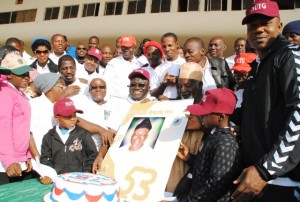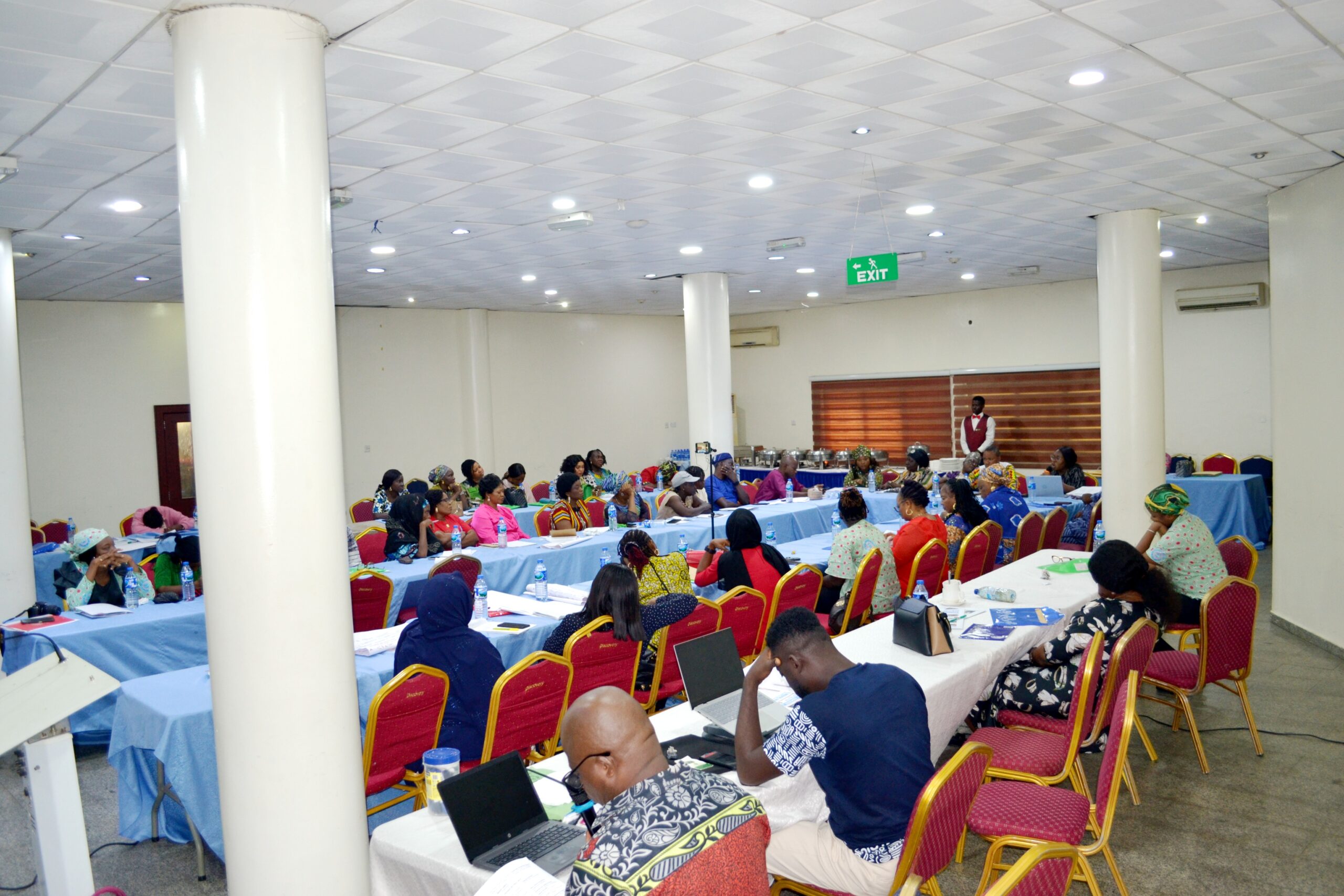I Thank God for His mercy. I am 53 years old. But how old is Nigeria? In the New Year message, President Goodluck Jonathan devoted a great deal to the 100 years of Nigeria’s amalgamation by the British Colonial authorities. He also promised a centenary amalgamation in 2014. Is Nigeria indeed 100 years old? Does amalgamation worth being celebrated?
PRESIDENT MUST COME TO TERMS WITH NIGERIA’S HISTORY
I agree with the legendary Regea star BOB MARLEY who in the popular track; Buffalo soldier sang that; “If you know your history, then you would know where you are coming from”.
The point cannot be overstated that Nigeria was in existence well before amalgamation of 1914 by the British. For instance, the first official trade union, Civil Service Union was formed in 1912. That was two years before the British administrative amalgamation of the North and Southern protectorates. So simple common sense shows that there was indeed a country called Nigeria before Lord Lugard and his amalgamation. No wonder that Nigeria has so far outlived the British colonialism which terminated in 1960 after independence.
Of course, 1914 is a landmark in colonial exploitative campaign in Nigeria. However President Jonathan should avoid the pitfall of presenting Lord Lugard as the founding father of modern Nigeria. Lord Lugard (and indeed none of the British colonial masters) was NOT the founding father of Nigeria! The founding fathers of modern Nigeria are Nigerians themselves.
MACAULAY, NOT LORD LUGARD
One notable founding father was Herbert Macaulay. Macaulay (not Lord Lugard) was one of the first Nigerian nationalists who fought British imperialism for which he was jailed twice. As far back as 1908 he started the struggle to expose European corruption and exploitation and freedom for Nigerians well before Lugard’s arrival in Nigeria. He formed the first Nigerian political party on the June 24, 1923, known as the Nigerian National Democratic Party (NNDP). He was popular with the Nigerian masses such that he won all the seats in the popular elections of 1923, 1928 and 1933. Subsequent nationalists like Nnamdi Azikwe, Obafemi Awolowo, Raji Abdallah, Aminu Kano, Tafawa Balewa got inspiration from Macaulay to commendably achieve independence in 1960.
NIGERIA WAS ONCE A COUNTRY WITH UNINTERRUPTED POWER SUPPLY
Winston Churchill, once said “Study history, study history. In history lies all the secrets of statecraft”. Some of the achievements of Nigeria’s founding fathers apart from independence are worth celebrating. One notable achievement was massive investment in electricity generation to propel Industrialization. It is a sad commentary that Nigeria of 1960s and 70s relatively generated and distributed electricity than Nigeria of 2014. Indeed in the 60s up to 80s manufacturing and industrialization contributed about 24 per cent of Nigeria’s GDP compared to today when manufacturing contributes less than 4 per cent. This was because there was relatively better uninterrupted electricity supply compared to present day power outages. Nigeria in recent times has witnessed unacceptable massive industrial divestment due to factories’ closure because of abysmal unstable, expensive power supply and in many cases non-supply at all.
NO INDUSTRIALIZATION AND DEVELOPMENT WITHOUT ELECTRIFICATION
President Goodluck Jonathan of Nigeria had hinted that his plans for Nigeria in 2014 include minimum of 18 hours electricity supply daily. This is refreshing but not reassuring. For a country that has for over 30 years witnessed unacceptable power outages leading to massive closure of factories, job losses and poverty, 18 hours minimum electricity supply is token, unambitious, patronising, unhelpful and development-blind. What Nigeria and Nigerians want and are prepared to pay for is not another promissory notes or day-dreaming promises but immediate uninterrupted electricity service delivery to propel Industrialization, productivity, create mass decent jobs and eradicate poverty. The truth is that today power supply despite the much taunted privatization, has gone from bad to worse. President Jonathan must know that privatisation of power sector is just the means not the end. The end Nigerians are looking forward to is uninterrupted power supply.
It is therefore a welcome development that Federal Government has given marching orders to power investors and key operators in the sector to, as a matter of urgency, ensure that there was visible supply of electricity across the country by June this year. But even at that given the enormous damage the current supply crisis has engendered for productivity and investment, June is still far. In the long run, if the current non-supply of electricity persists, Nigerian economy might be shut down altogether because all Nigerians are generators’ fatigue.
United Nations Industrial Development Organization (UNIDO) has shown that with persistent fuel prices, diesel generated electricity, Nigeria has the highest power costs in comparison with other developing countries such as India and South Africa. Frequent power outages cause interruptions in the manufacturing process which in turn undermine standard of production thus making the industry uncompetitive. Nigeria commendably strives to become one of the leading 20 economies in 6 years time. But certainly Nigeria cannot be a developed economy with non-power supply, expensive erratic supply and miserable promissory 18 hours minimum supply in 6 months.
URGENTLY ADDRESS LABOUR MARKET ISSUES
The nation continues to count the costs of the 6 month long strike by ASUU that shut down universities last year. Currently the polytechnics are still shut down due to teaching staffs’ strike. Doctors have just suspended a 5 day warning strike while other health workers have threatened another service withdrawal.
The petroleum workers represented by both NUPENG and PENGASSAN have just suspended an impending action over the proposed privatization of refineries. I suggest that the tripartite National Advisory Labour Council (NALC) should this year to convey a special session on collective bargaining and conflict resolution with governments, employers and labour as participants to address all critical labour issues with particular reference to respect for sanctity of collective agreements by governments, mediation and conciliation in cases of disputes and rethinking of resistance options by unions that ensure maximum benefits but minimum costs to the workers, citizens and economy as a whole.
GOVERNMENT MUST RETHINK ITS REFORM
Most causes of labour unrest are due to insincerity and wrong approach to reform. Take the latest proposed privatization of the refineries. The Bureau of Public Enterprise (BPE) recently announced the sale of refineries, giving credence to the earlier statement credited to the Minister of Petroleum Resources, Diezani Alison-Madueke in London according to which the federal government had concluded plans to sell off its four state-owned oil refineries before the end of the first quarter of next year. After the petroleum unions threatened a strike, the presidency has come to deny any sale of refineries. Already there is a distrust and crisis of confidence in the reform of a government that lacks transparency. Reforms must have integrity and sincerity of purpose. We support the legitimate concerns of both PENGASSAN and NUPENG. Let the Ministry of Petroleum resources do one thing at a time. It must ensure the passage of the Petroleum Industry Bill (PIB) which has been gathering dust for more than 10 years. The proposed privatization of the refineries points to our official wrong approach to reform. If we cannot pass PIB in ten years, why selling off refineries in 18 months?
PEACE AND UNITY OF NIGERIA
All the above call for peace and united Nigeria before there can be development. The present politics of corruption must give way to politics of development. All politicians must avoid violence and promote issues-based politics that voters can relate to. We commend Kaduna state government under, Alhaji Dr. Mukhtar Ramallan Yero for sustaining peace in the State.
All Nigerians must cooperate with the President for Nigeria to overcome current security challenges as a precondition for growth and development.
I thank all that have made today another day of celebration of life.
Issa Aremu mni
GENERAL SECRETARY, NUTGTWN
VICE PRESIDENT, NLC
CHAIRMAN, IndustriALL Global Union, Africa Region
SECRETARY GENERAL, Alumni Association of the National Institute, AANI







